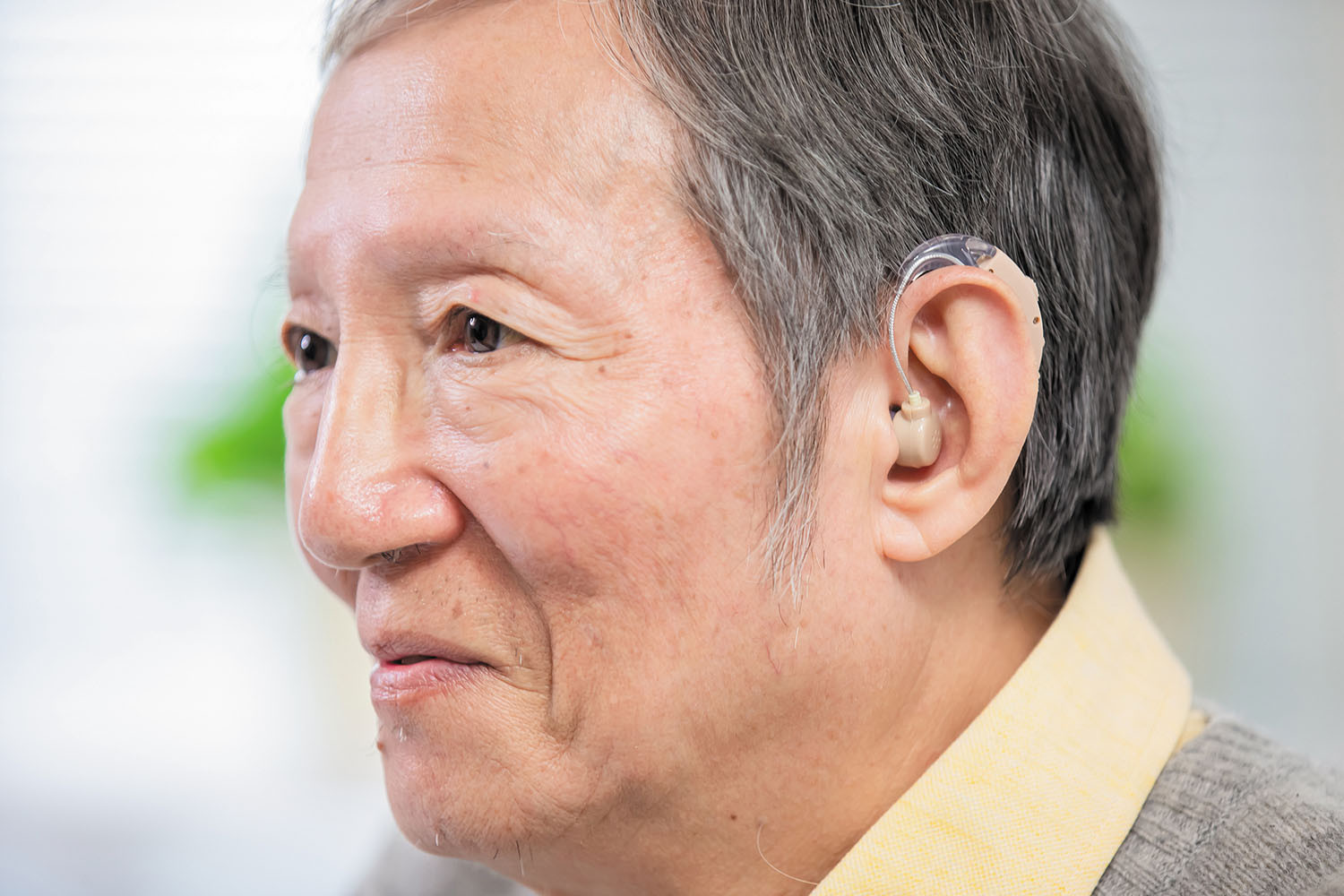
Can saw palmetto treat an enlarged prostate?

How does Ozempic work? Understanding GLP-1s for diabetes, weight loss, and beyond

Zinc: What it does for the body, and the best food sources

Respiratory health harms often follow flooding: Taking these steps can help

Tips to leverage neuroplasticity to maintain cognitive fitness as you age

Can white noise really help you sleep better?

Celiac disease: Exploring four myths

What is prostatitis and how is it treated?

What is Cushing syndrome?

Exercises to relieve joint pain
Hearing Loss Archive
Articles
Improving access to hearing aids
Don’t let vertigo spin out of control
This often scary condition can happen at almost any time.
Everyone experiences an occasional bout of feeling dizzy. But vertigo is a distinct type of dizziness, with an estimated 40% of adults suffering from it at least once in their lifetime — and the risk rises with age.
"Because vertigo often strikes out of the blue, an acute attack can be potentially dangerous by increasing your risk of a fall," says Dr. Howard LeWine, chief medical editor of Harvard Health Publishing. "While there is no cure for most causes of vertigo, there are ways to reduce symptoms during an attack and avoid recurrent episodes."
What's causing the ringing sound in my ear?
A ringing sound in one or both ears is usually a form of an annoying condition called tinnitus. When tinnitus persists, treatment such as cognitive behavioral therapy, tinnitus retraining therapy or biofeedback, can ease symptoms.
Over-the-counter hearing aids: Are they ready yet?
They're not yet FDA-approved, but the devices are available and safe — if you know what to look for.
When Congress passed the Over-the-Counter (OTC) Hearing Aid Act in 2017, it opened up a new world of possibility for people with hearing loss. Instead of paying $5,000 for a pair of FDA-approved hearing aids and follow-up service, you could pay hundreds of dollars for an OTC pair from any seller — no doctor appointments, hearing tests, or fittings needed. The devices would have the same fundamental technology as traditional hearing aids, they'd be targeted to people with perceived mild-to-moderate hearing loss, and the FDA would ensure quality by regulating and approving the OTC devices.
But almost four years later, the OTC hearing aid category and its safety and labeling rules are still tied up in red tape.
Air travel health tips
With summer's approach come plans for travel, including flying long distances. But the prospect of a long flight often raises health concerns. Especially in passengers who are older or have certain conditions, air travel and the related stress can have an impact on health. Here are a few trouble areas and some precautions you can take.
Deep-vein thrombosis (DVT). Not all experts agree on an association between DVT (blood clots in the legs) and air travel. Symptoms may not occur for several days, so it's difficult to establish a cause-and-effect relationship. If there is one, it's likely due to prolonged inactivity. Limited airline space can discourage moving about. Dry cabin air may also increase the risk of DVT.
Sound check on hearing aids
Don't wait to get hearing aids if you need them. They can improve your quality of life.
Hearing aids may be a symbol of advancing age, but they also can be your means to a healthier and more vibrant life.
Research continues to show that people with age-related hearing loss who get fitted for hearing aids tend to become more active. Some science has even suggested they have fewer cognitive issues.
Common physical problems that threaten your driving skills
Addressing arthritis, hearing loss, and cataracts will help preserve your independence.
Older age brings lots of physical changes, like stiffer joints and difficulty seeing or hearing. Those developments may not cause disability, but they may have an effect — even a subtle one — on your driving. That's why it's smart to be proactive once you notice physical changes, to find out how each condition can jeopardize your driving skills, your safety, and the safety of others on the road.
Common ailments
There are many physical changes that can affect your driving skills. The following are among the most common.
Hearing Loss in Adults
What Is It?
Hearing loss is a decrease in the ability to perceive sounds. It can be partial or total, sudden or gradual, temporary or permanent. It can affect one ear or both. In general, the risk of hearing loss increases with age.
Sound enters the ear and strikes the eardrum. This causes the eardrum to vibrate. The eardrum's vibrations are amplified through the middle ear by three tiny bones. Inside the ear, the vibrations are transformed into nerve impulses. These nerve impulses travel to the brain, where they are interpreted as sounds.

Can saw palmetto treat an enlarged prostate?

How does Ozempic work? Understanding GLP-1s for diabetes, weight loss, and beyond

Zinc: What it does for the body, and the best food sources

Respiratory health harms often follow flooding: Taking these steps can help

Tips to leverage neuroplasticity to maintain cognitive fitness as you age

Can white noise really help you sleep better?

Celiac disease: Exploring four myths

What is prostatitis and how is it treated?

What is Cushing syndrome?

Exercises to relieve joint pain
Free Healthbeat Signup
Get the latest in health news delivered to your inbox!
Sign Up











